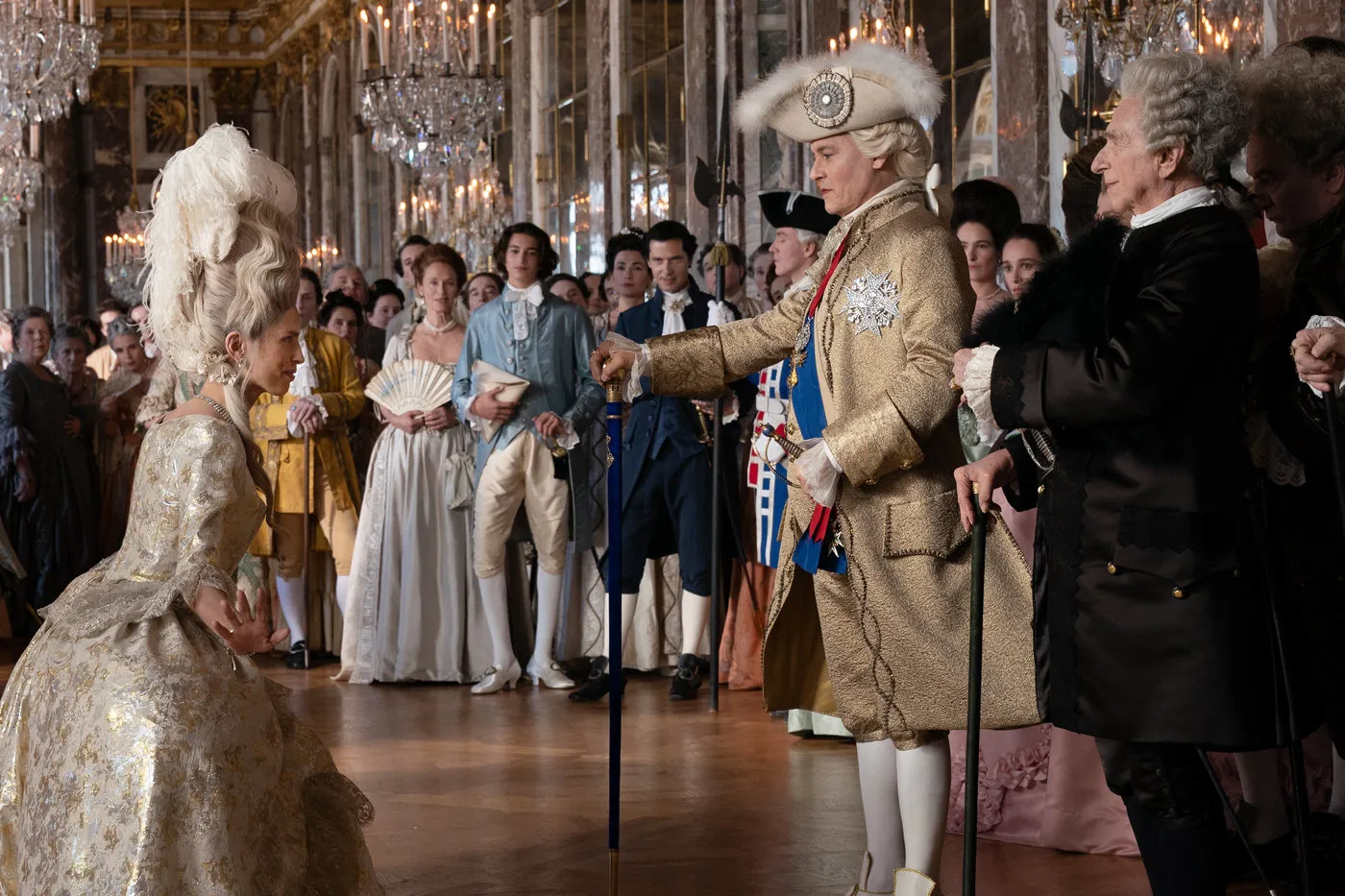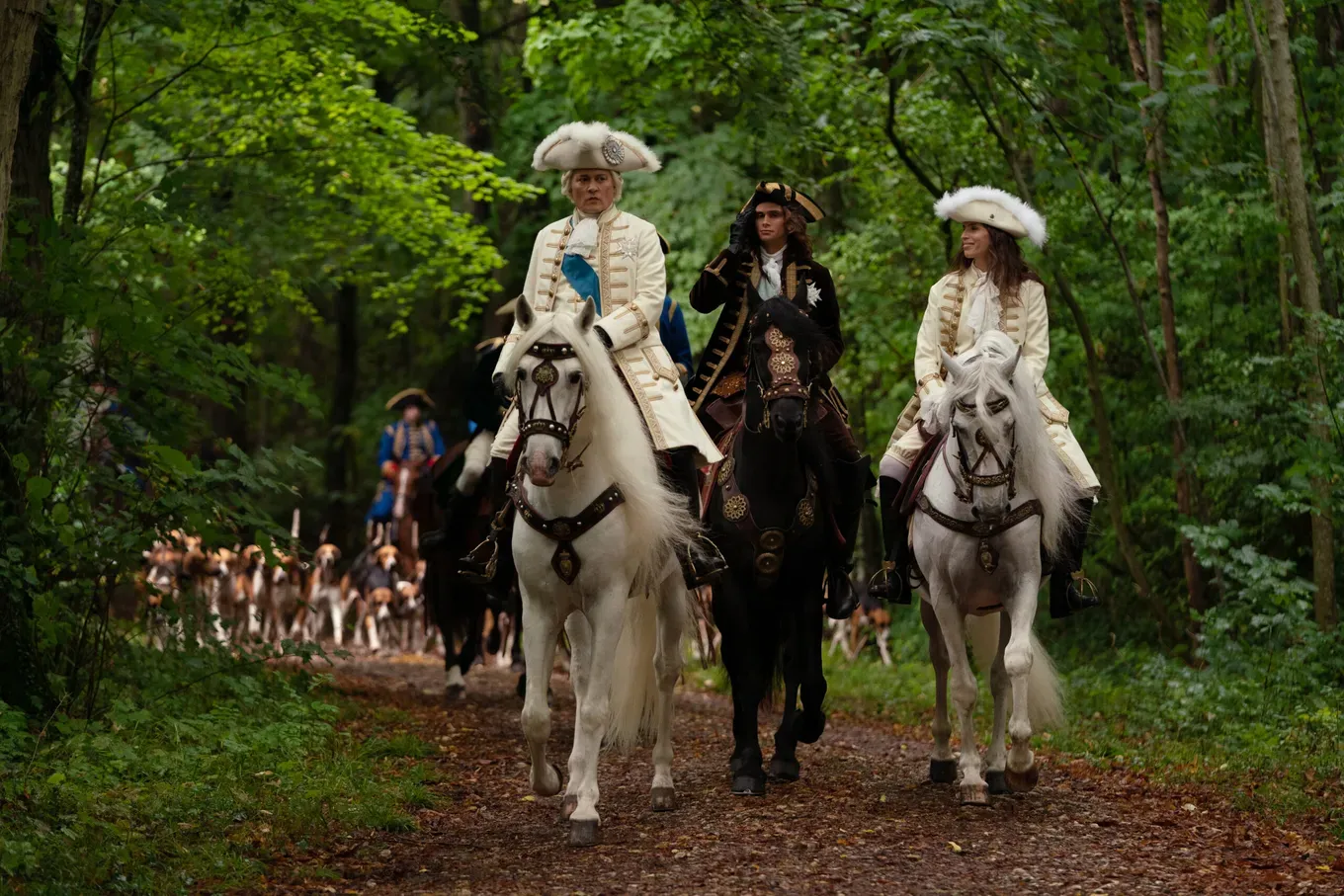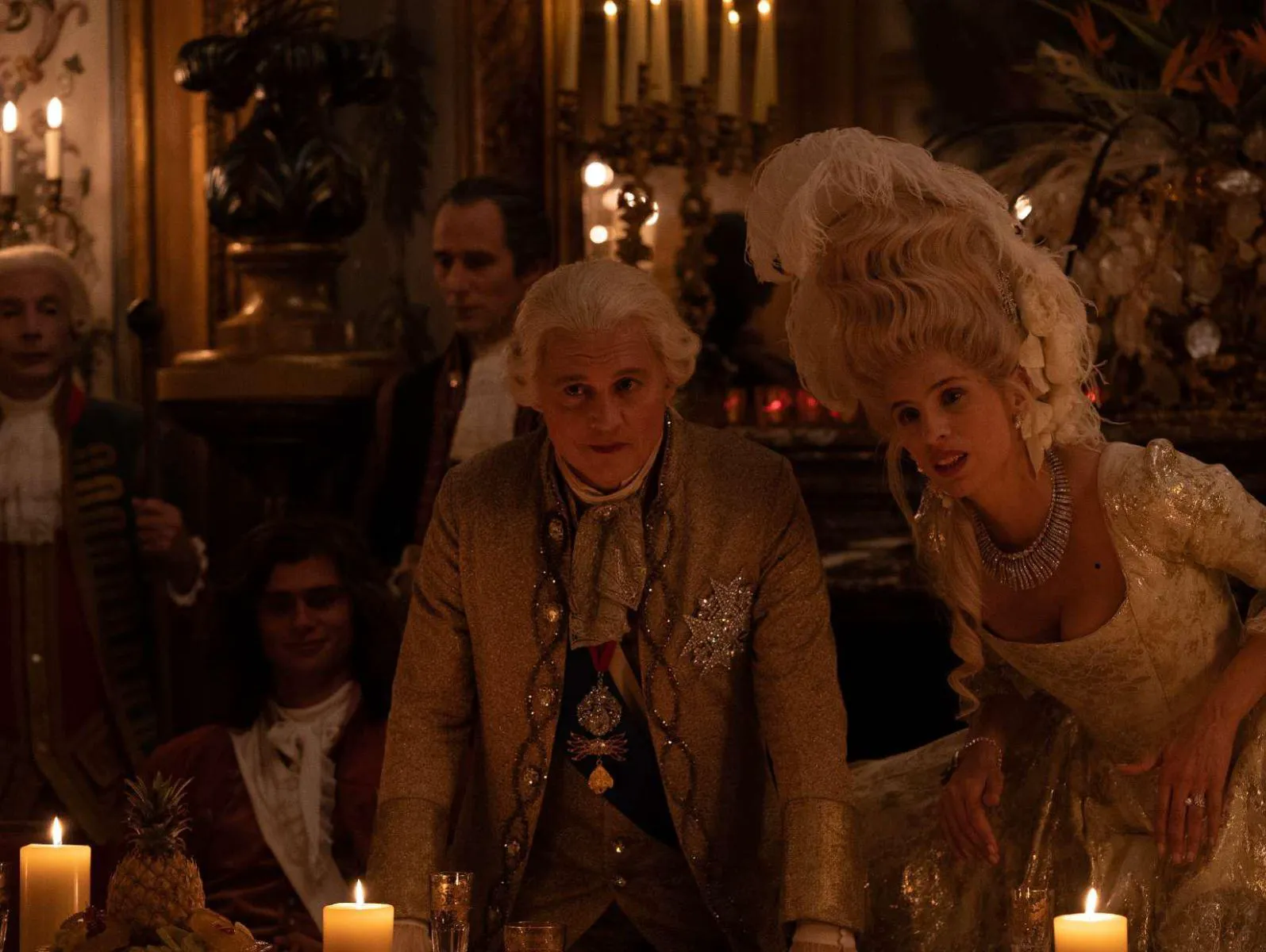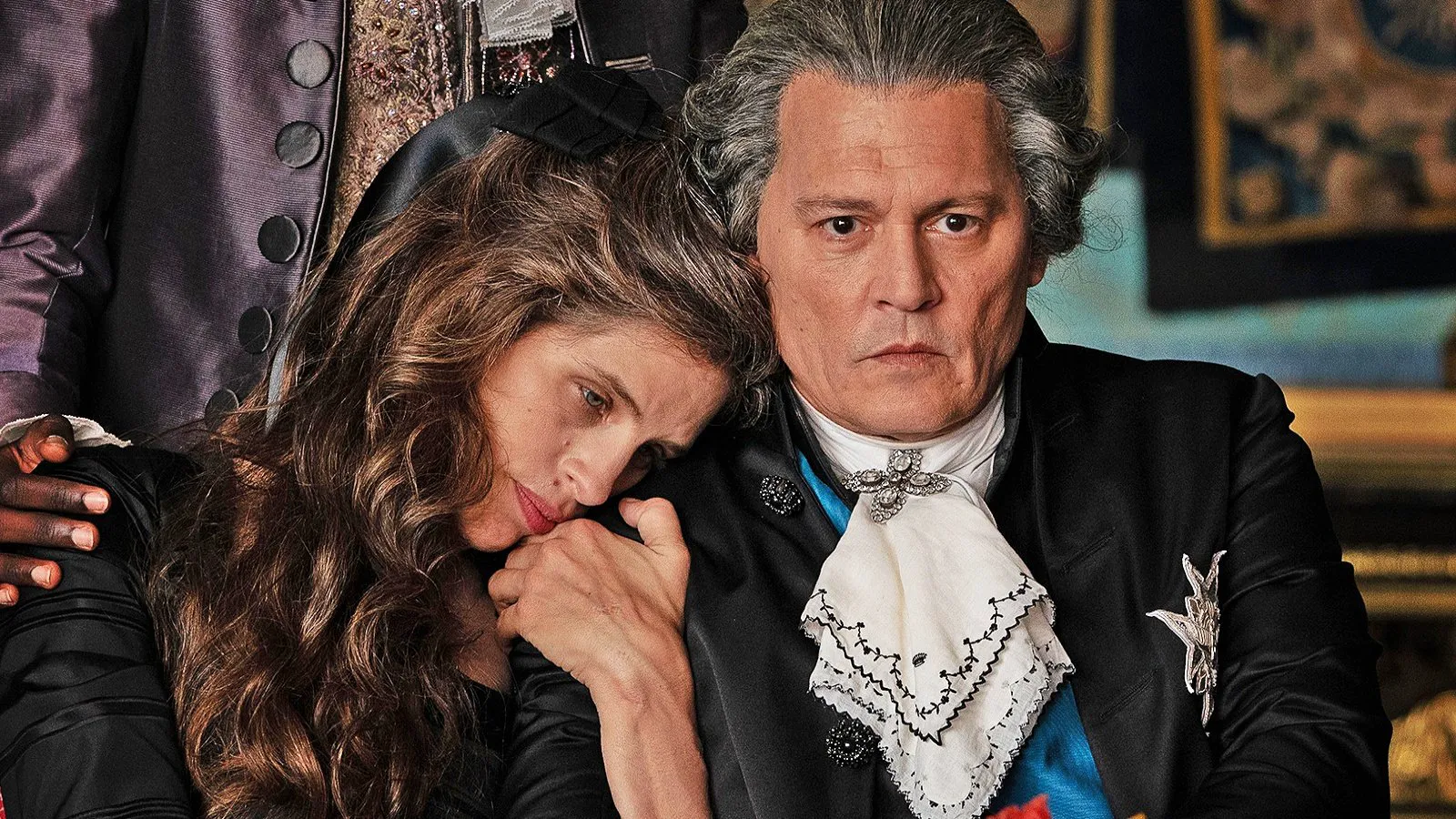It’s tempting to begin with a tedious film critic’s rundown of the 2023 Cannes Film Festival. But why nitpick when the sun is gently kissing the carefree crowds on the French Riviera, and the breeze is protecting their elaborate hairstyles? Ahead lie nearly two weeks of premieres (Scorsese! Almodóvar! Gondry!), red carpets, and awards ceremonies. And Johnny Depp had the honor of opening this bourgeois celebration. The beloved actor became the star of a spontaneous divorce reality show, and after a series of dismissals under the banner of “cancellation,” he’s back where he belongs – in the VIP cabin of the cinematic cruise ship. The Spanish were among the first to “forgive” Depp, inviting him to the San Sebastian Film Festival and bestowing upon him an honorary award. But it’s with France that Johnny shares a particularly tender affection, a bond that hasn’t faded even after the divorce (both literal and allegorical): Dior signed a lucrative contract with Depp, and Thierry Frémaux (the director of the Cannes Film Festival) rolled out the red carpet for the opening. Everything seemed perfect: everyone forgiven, happy, and watching movies. There’s just one “but”: “Jeanne du Barry” – a costume rom-com that feels more like the twilight of Europe than a career renaissance.

Johnny Depp as Louis XV in a still from “Jeanne du Barry”
Who is Jeanne du Barry?
Behind the status of Louis XV’s presented favorite lies a multitude of stories worth telling. Obscure origins, an unhappy childhood, a youth spent as a courtesan, marriage to Guillaume du Barry, and finally, the patronage of the King of France against all odds. Du Barry (seemingly only slightly) dabbled in intrigues of both the romantic and political kind, provoking the ire of the Versailles public and introducing her own fashion of bows. So, what does Maïwenn’s film offer? Jokes, flirtation, and glances that eventually blossom into a great and powerful love between a monarch jaded by royal rituals (Depp) and a lady (Maïwenn herself) who traded constraint for a pair of new stockings.

Johnny Depp as Louis XV in a still from “Jeanne du Barry”
A Film More Suited for Streaming?
It’s not so much about personal expectations as it is about the backdrop of events: “Jeanne du Barry” is set to be released on Netflix. To secure a ticket to the grand Lumière Theatre, the film was released in theaters in France. However, the film will likely feel more at home on a streaming platform than at a festival. It could easily end up in a folder labeled: “What to watch if you liked ‘Bridgerton’?” But Maïwenn’s film can hardly keep up with the graceful audacity of the platform’s hit. After watching, one is left wondering how the lead actress and director, Maïwenn, wanted to portray this intriguing and controversial heroine. A feminist icon? A victim of conventions and status? A woman who loved? Du Barry remains a shadow, only occasionally paying the price of contempt for her scandalous antics. What she wants, why she cries or laughs – remains a mystery, masking the script’s holes.

Maïwenn as Jeanne du Barry in a still from “Jeanne du Barry”
A Focus on Feelings Over Context
Context takes a backseat for Maïwenn, serving the narrative like a weather forecast – the feelings of the royal personage and the vibrant lady rule the ball. Grotesquely drawn courtiers and the king’s family (Louis’ daughters are like Cinderella’s stepsisters in an interpretation that’s not even Disney, but a rom-com from the 2000s starring Hilary Duff) cast sidelong glances, roll their eyes, and plot unconvincing schemes against the favorite. One could build a path to revolution on the satire of Versailles’ morals, even if not very thoughtful (many of the film’s characters will lose their heads in an encounter with the guillotine), but Maïwenn doesn’t attempt to illustrate the crisis of the monarchy. Instead, she mocks for the sake of mocking (which isn’t particularly witty) and sympathizes with the king with all her might.

Maïwenn as Jeanne du Barry in a still from “Jeanne du Barry”
Johnny Depp’s Performance: A Missed Opportunity?
And so we arrive at the main point of discussion: Johnny Depp as Louis XV. The meta-dimension of Depp’s figure lends a rather compromising tone, to put it delicately, or, frankly, Spanish shame. While the courtiers torment the king with nonsense, the monarch himself is tormented by boredom, routine, and the intrusiveness of others’ advice. Depp endlessly clowns around, indulges, and ignores the “barking” of the court: the king’s boundless soul is above petty squabbles (and, apparently, governing the state). Unlike Maïwenn, it’s impossible to empathize with Louis XV from the audience’s seat: Depp has nowhere to unfurl the bastion of his acting talents, and in the palace setting, the artist looks like a self-satisfied autocrat who cares nothing for rebellions, wars, or the fate of the country, only for the selection of a new favorite capable of drowning his sorrows in caresses (an role unsuited for a man celebrating vindication). However, don’t expect any erotic tension either: the acrobatics of intimate life remain off-screen, and, even more lamentably, the film is ruined by a complete lack of attraction and chemistry between Depp and the filmmaker who organized the ball.
It’s easier to list what “Jeanne du Barry” didn’t become: a reinterpretation of a biography (in the spirit of Kreutzer’s “Corsage”), an alternative view of the era, a hooligan feuilleton, a visionary drama about forbidden love, an erotic thriller about court intrigues, or a worthy return of Depp to the big screen. The film’s opening slot is also strange: the archaic past is not so much seen off as it is wistfully persuaded to stay, if only out of nostalgia. The attempt to self-deprecatingly laugh at elitism fails – “Jeanne du Barry” received virtually no applause in the press room. I’d like to end the text with some insightful thought, but there are no conclusions: the king is neither naked nor clothed, neither thriving nor dying, it’s as if there is no king, and yet there is.